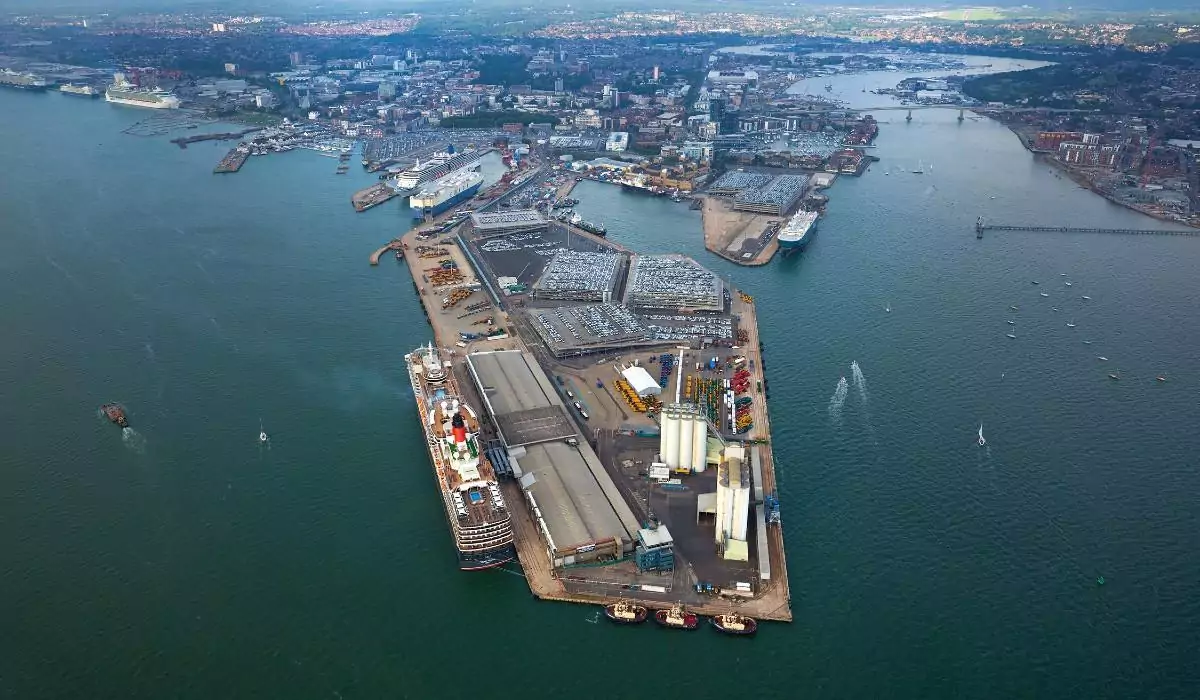Last year, Verizon Business announced that it was partnering with Nokia to deliver a 5G platform for global enterprises based in Europe and the Asia-Pacific region, making it clear that the company’s 5G ambitions extended far beyond the US borders.
Now, Verizon is announcing its first foray into the European private 5G market with a deployment at the Port of Southampton, following a deal with the Associated British Ports (ABP).
The Port of Southampton handles around £40 billion in exports for the UK every year, as well as handling around 900,000 cars and millions of cruise passengers ever year. With the deployment of a private 5G network, the Port will be able to benefit not only from the increased speeds and low latency, but also the myriad of new use cases that the technology can unlock, including the IoT, real-time analytics, and even autonomous guided vehicles.
Verizon’s private 5G is the foundation for a completely dedicated edge compute infrastructure, enabling ultra-low latency at the premise, higher levels of security and deeper customisation for our partners,” said Tami Erwin, CEO of Verizon Business.
“Businesses such as ABP, are coming under more pressure to evolve their services at tremendous speeds in order to take advantage of new commercial opportunities. Along with Nokia, we have been able to equip ABP to take advantage of the immediate benefits private 5G offers, and most importantly prepare the Port of Southampton to take full advantage of new technology applications and real-time analytics which will digitally transform its services in the future.”
The Port of Southampton is one of 21 ports operated by ABP and is the UK’s number one port for cars and cruise, handling approximately 900,000 cars and welcoming millions of cruise passengers annually. It is also responsible for handling £40 billion in exports every year.
The deployment will not only address the immediate problem of loss of onsite data communications as a result of poor Wi-Fi connectivity, but the advanced capabilities of private 5G, specifically its reliability, throughput, security and ultra-low latency can help enable the use of new technologies such as real-time analytics, the Internet of Things (IoT) and Machine Learning.
In turn, this can help with the enablement of new service advancements including asset tracking, autonomous guided vehicles, workflow management, predictive maintenance and safety monitoring in the near future.
Henrik L. Pedersen, ABP’s CEO, said:
“Building flexible and resilient technology platforms to meet our customers’ needs is a key element of our strategy, and becoming the first mainland port operator in the UK to offer a private 5G network to our customers is a fantastic milestone for ABP.
“We would like to thank our partners for enabling this project, which will equip our port in Southampton with the state-of-the-art infrastructure needed to be at the forefront of the digital revolution in the maritime industry.”
With their enormous economic impact, ports around the world are becoming increasingly popular locations for 5G private networks. In November last year, BT announced that it was helping to transform Belfast Harbour into a 5G smart port and in Germany Deutsche Telekom is in the process of doing likewise at the Port of Hamburg.




